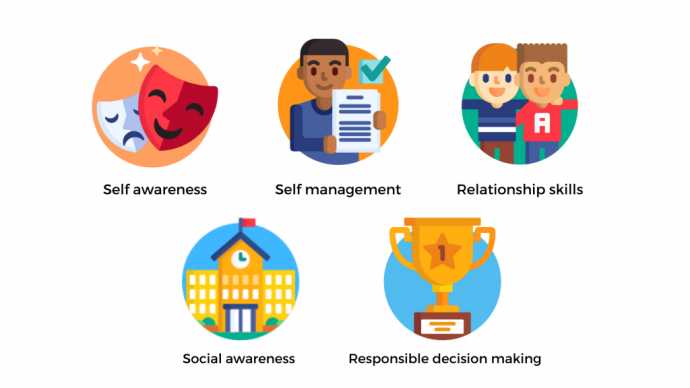
The Impact of Social and Emotional Skills on Student Learning: Unveiling the Crucial Connection
In the realm of education, the focus on student development encompasses more than academic development. It extends to the nurturing of social and emotional skills, acknowledging their profound influence on learning outcomes. Understanding how these skills interplay within educational settings illuminates their pivotal role in shaping students’ overall success. The students need to be socially and emotionally skilled if they need to develop themselves to participate actively in their practical lives and make useful contributions.
Unveiling the Importance of Social Skills
Social skills form the cornerstone of interactions within the academic sphere. These abilities encompass communication, collaboration, and empathy. By fostering effective communication, students can articulate their thoughts, engage in discussions, and seek help when needed. Although it comes naturally, since man is a social animal, but effective training can help students to make use of their social skills in a better way. Collaboration, on the other hand, cultivates teamwork and shared learning experiences, allowing students to benefit from diverse perspectives. It is said that two is always better than one, so when students work together, they can bring in better ideas and perform in a better way.
Nurturing Emotional Intelligence for Enhanced Learning
Emotional skills, often tied to emotional intelligence, are equally instrumental in shaping the learning process. Self-awareness empowers students to recognize their emotions, aiding in self-regulation during challenging academic situations. If students are emotionally well aware of themselves, they can manage these situations in a much better way. Furthermore, understanding and managing emotions contribute significantly to a positive learning environment, fostering resilience and adaptability.
The Intersection of Social and Emotional Skills
The amalgamation of social and emotional skills generates a conducive atmosphere for effective learning. Empathetic understanding of peers’ perspectives coupled with self-regulation enhances cooperation and problem-solving abilities. This synergy cultivates a supportive community within educational settings, facilitating improved learning outcomes.
Impact on Academic Performance
Research underscores the correlation between robust social and emotional skills and academic achievement. Students equipped with these skills demonstrate increased motivation, engagement, and focus in their studies. Research has established that positive use of social and emotional skills can have a positive impact on the performance of an individual. Moreover, they are better equipped to handle challenges, exhibiting higher levels of academic resilience, thus being better off in the long run.
Integrating Social and Emotional Learning into Education
Acknowledging the pivotal role of social and emotional skills in education prompts the integration of specialized programs and initiatives within curricula. Recent researches have shown that such modules should be incorporated within the curriculum so that students can benefit in the long run and demonstrate these skills in their practical careers. Embracing techniques such as role-playing, group activities, and mindfulness exercises facilitates the development of these skills among students, enhancing their overall learning experience.
Conclusion
The interconnection between social and emotional skills and student learning is undeniable. By nurturing these skills, educators pave the way for a holistic approach to education, ensuring that students not only excel academically but also thrive in various facets of life.
In conclusion, the harmonious integration of social and emotional skills proves to be a cornerstone in fostering an enriching learning environment that goes beyond traditional academic success. Through a balanced incorporation of social and emotional skill development, educational institutions pave the way for students to excel academically while flourishing as empathetic, resilient, and well-rounded individuals who will go a long way.

Content writer, educationist, teacher, researcher, social media manager, and a SEO manager from lahore. She has been working as a freelance academic and non-academic writer for more than 10 years now. She has a passion to learn new things and has a knack for writing and she combines both things to produce write ups she pours her heart out in.

